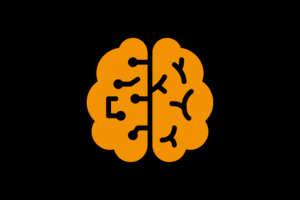
Most people’s brains work in a similar way to a Windows Operating System:
Windows is the most popular operating system, because it is quite simple and easy to use. From the start, you are walked through the steps that are needed to set up your PC, and it comes with the “basic” software you need to get started.
If you need any additional features or software, you can download these quite easily online. If you are having trouble with your Windows PC, it is quite easy to get support for this.

But Autistic brains are more like a Linux Operating System:
Linux is very different to Windows:

(Linux often involves inputting the correct commands in a terminal like this one)
Linux takes a lot longer to learn how to use. You need to spend a lot of time setting it up so that it can do everything that a Windows PC does.
Once you master it, it has a much wider range of features than windows and is more customisable. BUT it also has more room for error. It can be delicate and it can be disastrous if you get something wrong.
All brains can make decisions in one of two ways.
-
- The shortcut – Based on past experience does this feel positive or negative?
Positive = Yes, Negative = No.
-
- The fully evaluated decision – This is where you consider a lot more information related to this decision:
-
- Past experiences
-
- Information from others
-
- The probabilities of positive and negative outcomes
-
- Risk factors (what could go wrong?)
-
- Benefits (what will I gain?)
-
- All factors that may change the outcome
-
- Am I missing any information that could change these outcomes?
-
- And possibly more things
-
- The fully evaluated decision – This is where you consider a lot more information related to this decision:
Unsurprisingly, the second one is a lot harder work and can take a lot longer to do. The advantage is that it leads to much better decision making and better outcomes than the first one.
Most non-autistic brains much prefer to do option 1. They may create reasons to justify their decision – after they have made it – but at the time of the decision, it is purely automatic. Not always, but to switch to Option 2 takes intent and focus.
Autistic brains much prefer to do option 2. Not always – sometimes we can just act on impulse – but mostly, even simple decisions tend to be fully evaluated. Only when we are absolutely certain that the outcome will always be positive is our brain willing to automatically use Option 1. This is one of the reasons we may prefer to stick to familiar foods and familiar routines because it takes the decision making out.
This means that autistic people struggle with being told what to do. We often find it much easier when we are given a reason why something should be done, or what outcome people would like. Then we can come to our own conclusions around this.
The way our brains process information has distinct positives, but can also make some things more difficult:
+/- Autistic people often have more capacity to process information than non-autistic people, but it is also easier for us to become overloaded by having too much to process!
+/- We often find it easier to do something when we are given a reason why something should be done, rather than just being told what to do. When we are told a reason why, we are more likely to think “outside of the box” and come up with new solutions to problems (this is why there are so many scientists, inventors and people who have changed the world who are autistic, or suspected to be autistic). Unfortunately, people often expect us to do as we are told, without giving a reason why, which can make things really hard sometimes.
+/- It can be really hard to get used to a new environment or situation. But once we understand how the place works, we can get to know it really, really well.
-
- It is hard when people want an instant answer to questions. Our brains trying to do fast decision making can cause either an overload or force us to use the shortcut, which feels really unsafe and causes anxiety. Making some decisions can also be a lot harder for us.
-
- It can be hard to change our minds sometimes. When we have new information, we often have to reprocess everything we know about the topic to fit this new idea in. This process can be overwhelming, or can take a long time.
Top tips:
-
- When we don’t have enough information to make a fully informed decision, this can make us really anxious. Uncertainty is a huge cause of worry – so the more information we have, the better. If you are going to visit somewhere new, can you ask for pictures of the space, or a rough plan for an activity?
-
- Have a plan B – When you are unsure about a decision, having a “safety plan” is really helpful. For example:
-
- Can you agree with your parents that if you try something new, you are allowed to leave at any time if it isn’t right for you?
-
- Can you check if a new space has a “quiet space” to escape to if things get too much?
-
- Can you write a list of strategies that help you when you get stressed which you can use?
-
- Have a plan B – When you are unsure about a decision, having a “safety plan” is really helpful. For example:
Writing led by:
-
Nanny Aut, founder of Autistic Village and Inside Aut
-
Andy Smith, Founder of Spectrum Gaming



